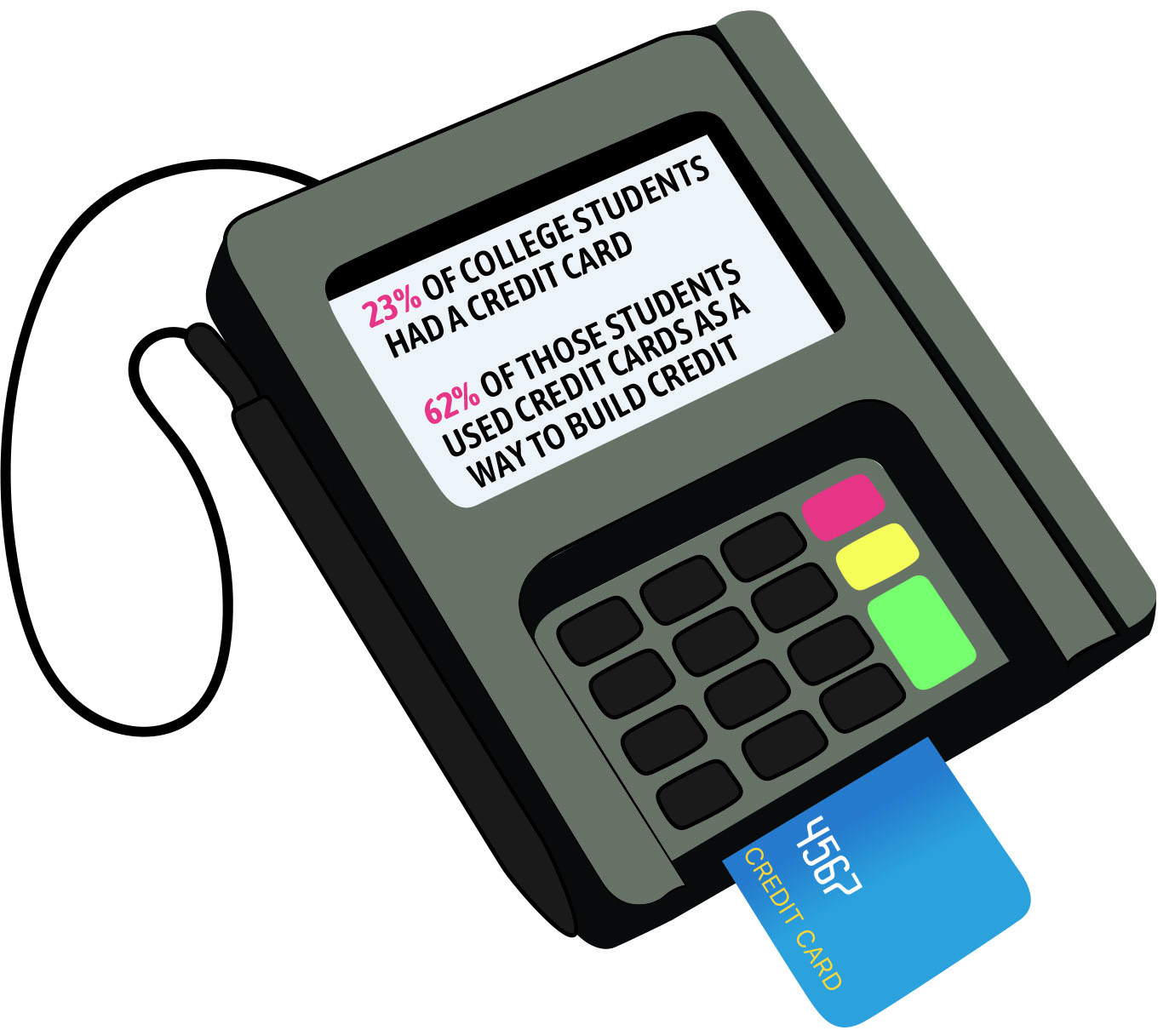Do you know your credit score? How students can ensure good credit
March 17, 2018

Do you know your credit score? How students can ensure good credit
By getting credit cards and borrowing student loans, college students are building credit histories with lasting consequences. But are students well-informed about what can go wrong and how to safely build their credit scores?
John Ganotis, founder of Credit Card Insider, a company that encourages people to use credit cards safely, said many individuals, even college graduates, do not necessarily grasp the importance of establishing credit.
“There are a lot of people who leave college and don’t understand how to use credit or how big of an impact it can have on their lives,” Ganotis said. “Our mission [at Credit Card Insider] is to help people understand credit and use it to their advantage.”
For students seeking credit cards, Ganotis encourages them to first learn about the credit scoring system and how their credit history will affect their futures.
“[Credit cards] can be a problem that leads to debt, so it’s up to each individual student to research and decide, ‘Is a credit card right for me?’” Ganotis said.
The average credit score in the country is currently at an all-time high of 695, according to ValuePenguin, a personal finance website that conducts in-depth research and analysis on such topics as insurance, credit cards and spending.
According to Value Penguin’s website, a credit score of 720 or more is considered excellent, while 660 to 719 is considered average or fair.
Kayla Zelenz, a junior broadcast journalism major, said although she is unaware of her credit score, she understands the responsibility that comes with owning a credit card.
Zelenz said she typically uses her credit card for essential purchases, such as groceries and textbooks, and saves her debit card for non-essentials. After purchasing items on the credit card, her mother pays them off, she added.
Jake Lunduski, community outreach director at Credit Card Insider, said he advises students to keep track of their monthly spending and review purchases to see whether they were actually necessary.
“[Reviewing your spending habits] will open your eyes,” Lunduski said. “Then you can see where you can cut out some spending and try to improve month over month.”
For students who have fallen into debt, Ganotis said the greatest step they can take in the future is working toward decreasing the debt and spending responsibly.
“Make sure you’re not making any more late payments because each time that adds a new one that will take seven years to go away,” Ganotis said.
Zelenz said for other students like herself who are just starting to use credit cards for the first time, “Keep track of your money, and don’t buy anything you know you would not be able to afford in the near future. [Just] spend wisely.







